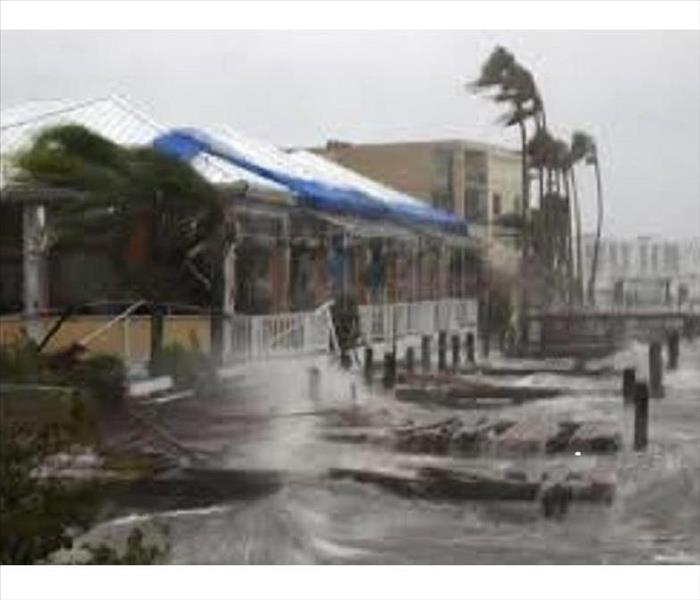Hurricane Safety During and After
9/10/2018 (Permalink)
Plan Ahead. . . Survive During and After
We know that hurricanes are massive storm systems that threaten us with powerful winds, heavy rainfall, storm surges, coastal and inland flooding, rip currents, tornadoes and even landslides. Hurricanes are the most active in September. You know what to do to plan ahead, and now let’s discuss how to SURVIVE DURING the hurricane.
- If you have been told to evacuate, do so immediately and do not drive around barricades.
- If sheltering during high winds, go to a FEMA safe room, or an ICC 500 storm shelter, or a small, interior windowless room or hallway on the lowest floor that is not subject to flooding.
- If you are trapped in a building by flooding, go to the highest level of the building. Do not climb into a closed attic, as you may become trapped by rising flood water.
- Listen for current emergency information and instructions.
- Use a generator or other gasoline powered machines outdoors only and away from windows.
- Do not walk, swim, or drive through flood waters. Turn around. Don’t Drown! Just 6 inches of moving water can knock you down, and one foot of moving water can sweep your vehicle away.
- Stay off of bridges over fast moving water.
Be safe AFTER
- Listen to authorities for information and special instructions.
- Be careful during clean-up. Wear protective clothing and work with someone else.
- Do not touch electrical equipment if it is wet or if you are standing in water. If it is safe to do so, turn off electricity at the main breaker or fuse box to prevent electric shock.
- Avoid wading in flood water, which can contain dangerous debris. Underground or downed power lines can also electrically charge the water.
- Save phone calls for emergencies. Phone systems are often down or busy after a disaster. Use text messages or social media to communicate with family and friends.
- Document any property damage with photographs. Contact your insurance company for assistance.





 24/7 Emergency Service
24/7 Emergency Service
